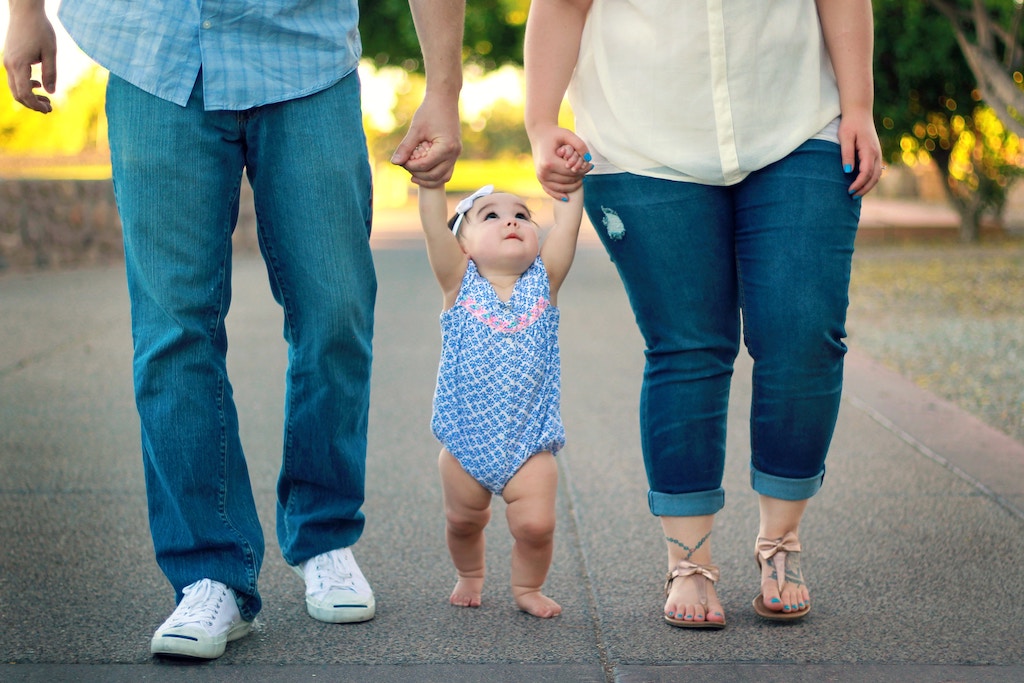SingaporeMotherhood | Parenting
July 2019
Parental Stress, Anxiety, and Burnout: are they happening to you?

Parents now live in an age where many people and things compete for our time and attention. No matter how cool they may appear, there is bound to be some parental stress they face. Workplace deadlines, the demands of loved ones in our lives, the daily commitments of adulthood and more all place a toll on our mental, emotional, physical, and psychological health.
For mothers, especially, the seeds of parental burnout can start sprouting early. Parenthood is a demanding journey which begins during pregnancy, and goes on throughout the six stages of child development — newborn, infant, toddler, pre-school, school age, and adolescent.
Each stage carries its share of challenges as the child’s needs changes. With these changes come corresponding needs for your attention and time, leading to parental stress, anxiety, and burnout.
Recognising the signs is a start. Here’s what else you can do to help yourself.
Postnatal blues, Postnatal depression, and Postnatal psychosis

The newborn stage is never easy, especially if you are a first-time mother. I met a few mothers recently who were learning to cope with their newborns. They found it difficult when their confinement nanny left them.
Not every new mummy has the support of their in-laws or parents, and not every new mummy has an involved, supportive husband. Hence, doctors are always concerned about the mental health of new mummies, especially regarding postnatal depression and postpartum psychosis.
Feelings of sadness in the first two weeks are usually known as post natal blues or baby blues. These tend to resolve on their own. However, if there are persistent feelings of sadness, there could be be postnatal depression.
Postnatal depression can be assessed with a questionnaire known as the Edinburgh Postnatal Depression Scale.
Postnatal psychosis is a medical emergency. Symptoms to look out for include hallucinations, delusions, moon swings, confusion, fear, and restlessness.
(See also: Baby Blues: When Perinatal Depression Strikes)
Parental Stress
Parental stress does not disappear when your baby grows up. In fact, it could increase. In the timeline below we see examples of the challenges for time and attention a parent would face at different stages of their child’s growth.
When your child is between 0 and 6 years old

Newborn (0-1 months) – You are preoccupied with regular feeding, and changing of your baby’s nappies — almost every 4-6 hours at times.
Infant (1 month to 1 year) – Your baby’s needs remain nearly the same as during the newborn phase. However, your maternity leave would have started to end within this time. If you are a working mum with a full-time job, you will need to re-adjust to the workplace, and start balancing increased responsibilities both at home, and at work.
Toddler and Preschool – These are formative years in your little one’s life. A child’s motor, speech and emotional development take off during this time. You need to have the physical energy and make time to keep up with your active child during this phase, while engaging them in activities that can keep them mentally stimulated.
(See also: Play is the Most Important Gift you can give to your Baby. Here’s why)
When your child is in school and beyond

School age – While most of your child’s activities will revolve around school learning, this is also a continuation of the formative years. Their emotions, attitudes, character and intellect will be developing during this time. Consequently you should make it a point to spend more time with your child, in order to understand them better, and guide them. In addition, some parents may get caught up with the educational “arms race” of tuition, enrichment, classes, and sports.
Adolescent – As your child blossoms into adolescence, they undergo a journey in discovering their identity. They also start to learn through relationships with others. This is another season in the child’s life where parental input and attention is crucial.
These demands for your time and energy can bring about parental stress, especially when you encounter hiccups along the way.
Parental Anxiety

At different stages of your child’s life, you may also face anxiety. These are worries over your child’s health, studies, and relationships. If you have three or more of the following symptoms of anxiety for more than six months, seek aid. There are solutions and therapies that can help, including medications, counselling, and mindfulness techniques.
Signs and Symptoms of Anxiety:
- Feeling nervous, irritable or on edge
- Feelings of danger, and doom
- Elevated heart rate
- Rapid shallow breathing, sweating, and trembling
- Difficulty concentrating
- Having trouble sleeping
- Experiencing gastrointestinal (GI) problems
Parental Burnout

Parental burnout is a syndrome characterised by emotional and physical exhaustion and a sense of incompetence as a parent. With the increasing demands of parenthood and lack of support, parents as caregivers face burnout. It is important to care for yourself. Follow these self-care tips for caregivers.
C – Care for yourself
Exercise regularly, eat well and take time off for personal activities and relationships.
A – Ask others for help, do not be afraid to ask
Let your loved ones know when you need help with caregiving and accept help when offered.
R – Ready yourself for caregiving
Participate in support groups to exchange knowledge and tips with other caregivers.
E – Empower yourself
Embrace your role as a caregiver, feel positive and focus on what you can control.
It is important to care for yourself first and foremost. Consequently, with the right frame of mind, you will then be ready to care for your loved ones.
(See also: Pregnancy Self-Care, Trimester by Trimester)
Where to Get Help
For immediate help: Call 999 or the Samaritans of Singapore (SOS) at 1800-221-4444 (Both operate 24/7). Stay on the phone with them until someone comes to you. Alternatively, go to the Accident & Emergency (A&E) Department of the nearest hospital.
For non-urgent cases: the IMH has a community health assessment team (CHAT) that offers mental health assessment at Scape Hub Orchard. You can make an online appointment here.
Dr Julian Hong is a DTAP Clinic Group doctor and the alternate director of Resilience Collective, a community that empowers resilience for persons in recovery from mental health or trauma experiences.
Header image: Source
All content from this article, including images, cannot be reproduced without credits or written permission from SingaporeMotherhood.
Follow us on Facebook, Instagram, and Telegram for the latest article and promotion updates.





